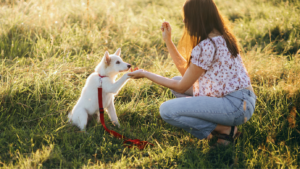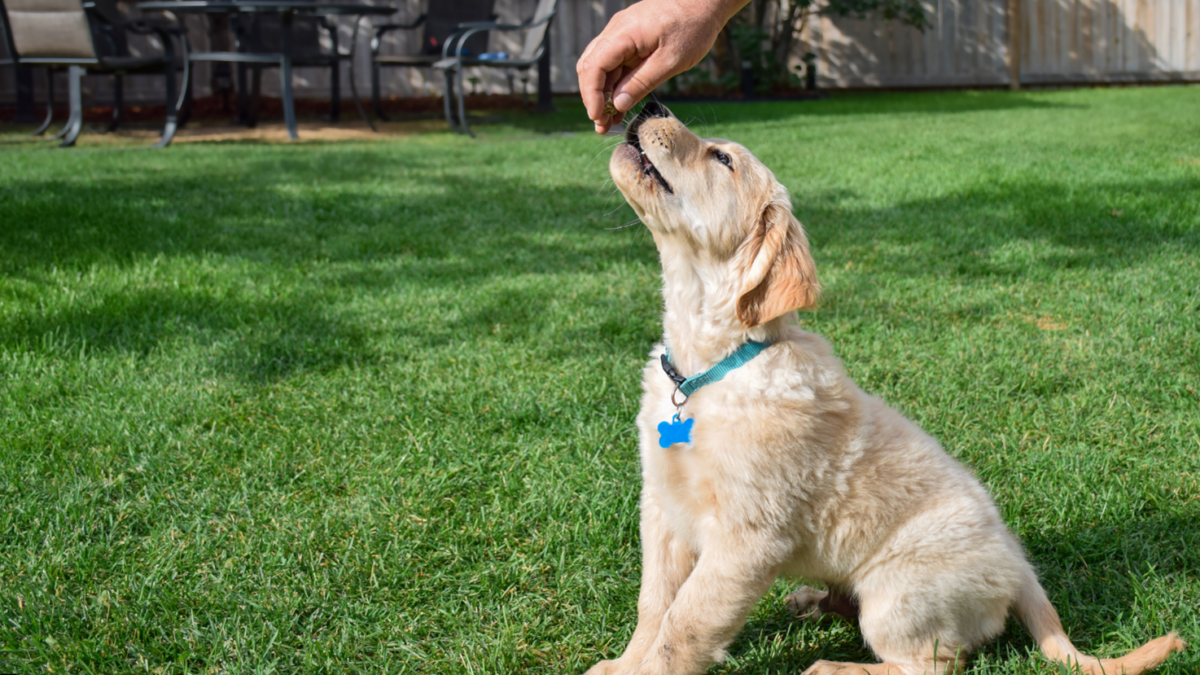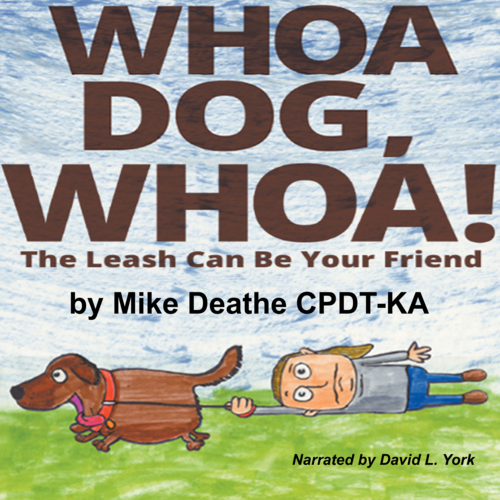Common Mistakes to Avoid During Puppy Training in Shawnee
Bringing home a new puppy is an exciting and joyful experience, but it also comes with the responsibility of training them to become well-behaved and happy dogs. For first-time puppy owners, it’s easy to make mistakes that can hinder training progress or even reinforce unwanted behaviors.
In this blog, we’ll discuss the most common mistakes people make when training a puppy for the first time and how to avoid them. If you ever feel stuck or overwhelmed, seeking help from a dog behavior specialist in Kansas City can make the process smoother and more effective.
1. Inconsistent Training
One of the biggest mistakes puppy owners make is inconsistency in training. Puppies need clear and consistent routines to understand what’s expected of them. If one person in the household allows the puppy to jump on the couch while another doesn’t, this sends mixed messages that can confuse the puppy.
Solution: Make sure everyone in the household is on the same page about the routines and commands. Consistency in tone, commands, and rewards is key to effective puppy training in Shawnee. Use the same words for commands like “sit,” “stay,” and “come” to avoid confusing your puppy.
2. Not Starting Early Enough
Another common mistake is delaying training until the puppy is older. Some owners mistakenly believe that their puppy is “too young” to learn or that bad habits will naturally go away as the puppy matures. The reality is that puppies are incredibly receptive to learning between 8 to 16 weeks of age. In fact, it’s never too early to start training and rewarding for making the right choice!
Solution: Start training your puppy as soon as they come home. This includes basic commands like “sit,” “stay,” and potty training. Early training sets the foundation for a well-behaved adult dog. As an expert on puppy training in Shawnee, K.I.S.S. Dog Training can help guide you on the right path from the beginning.
3. Neglecting Socialization
Socialization is critical for puppies to learn how to behave around other dogs, people, and in different environments. Failing to expose your puppy to various social situations can result in fear or aggressive behaviors later on.
Solution: Begin socializing your puppy as early as possible by introducing them to different people, environments, and other dogs in a controlled and positive way. Gradual exposure builds confidence and helps prevent behavioral issues like aggression or fear.

4. Expecting Immediate Results
Many new puppy owners expect their puppies to learn commands and behaviors overnight, leading to frustration when the dog doesn’t pick up skills as quickly as anticipated. Training takes time and patience, especially for young dogs still learning about their environment.
Solution: Be patient and understand that training is a gradual process. Celebrate small successes and remain consistent with training techniques. If you’re feeling impatient or unsure, speak to a dog behavior specialist in Kansas City at K.I.S.S. Dog Training. We can provide you with guidance on managing your expectations and setting realistic goals for your puppy’s training progress.
5. Skipping Crate Training
Some owners avoid crate training because they feel it’s cruel, but when done correctly, crate training can offer your puppy a safe space where they feel secure. It can also be a valuable tool for housebreaking.
Solution: Introduce the crate as a positive space by placing treats, toys, and comfortable bedding inside. Never use the crate as a form of punishment, and limit the amount of time your puppy spends in the crate to avoid feelings of isolation. Crate training can also assist with house training, keeping your puppy safe and preventing destructive behaviors.
6. Too Much Freedom Too Soon
Giving a puppy too much freedom before they’re ready can lead to accidents, destructive chewing, and difficulty in house training. Puppies need boundaries and supervision to learn what’s acceptable.
Solution: Supervise your puppy closely when they are out of their crate and gradually expand their freedom as they become more reliable with training. This way, you can catch bad behaviors in the moment and redirect them, rather than trying to fix deeply ingrained habits later on.
7. Neglecting Professional Help
Some puppy owners are hesitant to seek help from professional trainers, believing they can handle the process on their own. However, professional guidance can significantly improve training efficiency, especially if behavioral issues arise.
Solution: Don’t hesitate to reach out for help. A dog behavior specialist in Kansas City can provide you with personalized advice and support, making your puppy’s training experience smoother and more successful.
Conclusion
Training a puppy can be a rewarding yet challenging experience, especially for first-time owners. Avoiding these common mistakes will set you and your puppy up for success. If you find yourself facing difficulties or feeling unsure about how to proceed, remember that professional help is always available.
At K.I.S.S. Dog Training, a professional dog behavior specialist in Kansas City can provide expert advice to ensure your puppy grows into a well-behaved, confident, and happy dog. With patience, consistency, and the right guidance, you and your puppy will form a strong, lasting bond built on trust and understanding.

We Are Your Source for Professional Puppy Training in Shawnee!
K.I.S.S. Dog Training has been a leading dog behavior specialist in Shawnee for over ten years. We take pride in strengthening the relationships between owners and their dogs. We believe it’s essential for humans to understand what their dog needs and the best ways to help them get it.
Contact us online or give us a call at 913-269-7595 to partner with a trainer. We are located in Shawnee and service Overland Park, Olathe, and other communities in the greater Kansas City metro area.
Related Posts
Search Blogs
Most Popular Posts
K.I.S.S. Dog Training proudly serves the Kansas City Metro, Overland Park and Surrounding Areas. 40 miles, 20 miles each way from Shawnee, KS is included for In-Home Sessions... Over that mileage is an additional charge of $1.00 per mile... Call with Questions
Contact Us Today!
K.I.S.S. Dog Training
Shawnee, Kansas
(913) 269-7595







